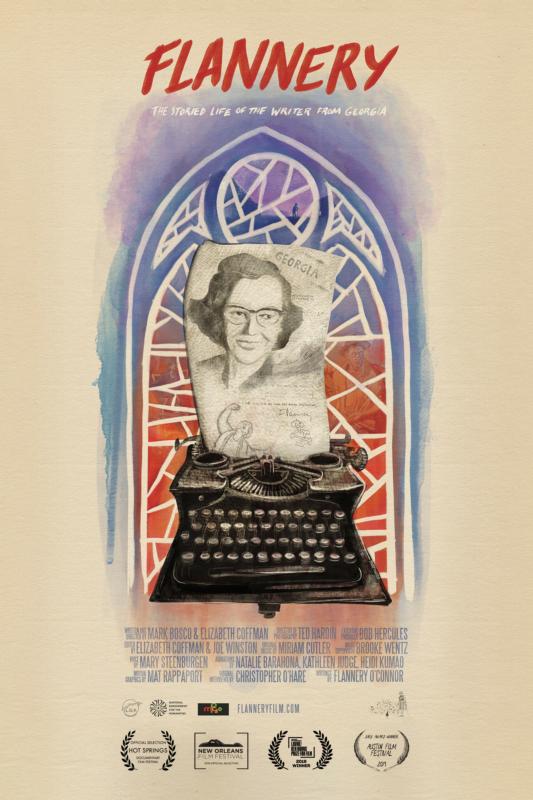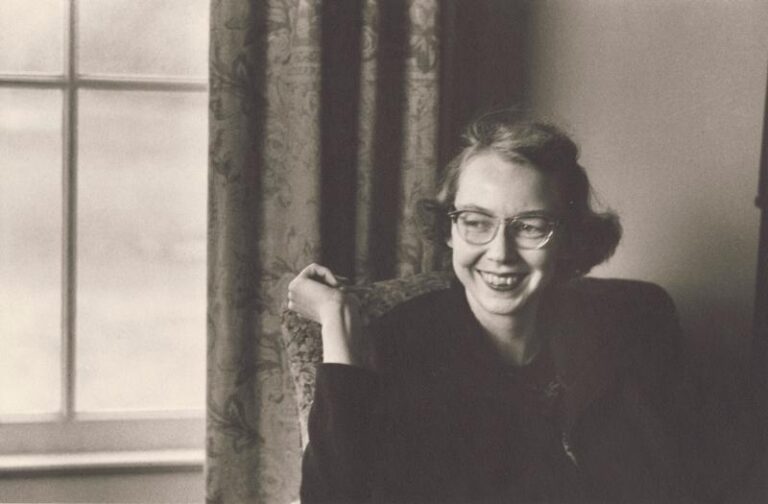
WASHINGTON (CNS) — “Flannery,” a documentary about the life and writings of Catholic writer Flannery O’Connor, opens in select virtual cinemas nationwide July 17.
Previously, the movie, which won the Library of Congress Lavine/Ken Burns Prize for Film in 2019, has only been shown in film festivals and college campuses.
The movie screenings have always been followed by discussions with the film’s directors, not only about the movie itself, but about issues raised in it by O’Connor’s writings on race, sexism and faith. The online viewings, listed at www.flanneryfilm.com/calendar, will follow a similar pattern, of sorts, this year with four live, virtual discussions on Facebook with filmmakers, a guest moderator and panelists focusing on O’Connor themes.
The discussions — at www.facebook.com/flanneryfilm/events — will focus specifically on race, faith, the craft of writing and O’Connor’s disability. She died in in 1964 at age 39 from Lupus complications.
The first discussion July 20 is particularly timely, looking at O’Connor’s complicated relationship with race, from her characters and settings to her personal writings and positions during the civil rights movement.
“Flannery” was an eight-year project of co-directors Elizabeth Coffman, an associate professor of film and digital media at Loyola University Chicago, and Jesuit Father Mark Bosco, vice president for mission and ministry at Georgetown University.
It took a while, because as Father Bosco told Catholic News Service last year after the movie won the Ken Burns Prize, and its $200,000 finishing grant, he and Coffman both had day jobs.
But it was a labor of love for both of them.
The 96-minute film tells O’Connor’s story from interviews with contemporary writers and artists influenced by her such as actor Tommy Lee Jones and Alice Walker, author of “The Color Purple,” as well as motion graphic animations of pieces of her work and archival footage of an interview with the Georgia author.
O’Connor, described as a Southern Gothic writer, wrote two novels and 32 short stories known for their portrayals of the South and also for their dark and sometimes comic imagery that revealed people’s true, and not always flattering, sides. She also frequently wove together Catholic themes of grace and redemption.
The animated discussions after the screenings only reinforced the directors’ views that O’Connor still has something to say to readers and audiences right now.
“People respond with passion,” Coffman told CNS in between movie screenings at film festivals last fall.
The fact the film touches a nerve follows what the directors wanted to convey. Father Bosco, an O’Connor expert, said he wanted the movie to give equal time to the writer’s Catholic faith, her white privilege, and her sense of being a Southern person and someone with a disability.
The initial idea for the documentary stemmed from a collection of archival interviews about O’Connor that Father Bosco received and intended to show at a conference. The priest, who was then an associate professor of English and theology at Loyola University Chicago, felt he should do more with this material, especially knowing that Coffman, his colleague at Loyola and a documentarian, “knew how to do this in spades.”
They were both were intrigued by the idea, but they faced some immediate challenges. For starters, there was only one filmed interview with O’Connor, and one short piece of her as a child — teaching a chicken to walk backward — and not many photos. Also, the Flannery O’Connor Trust would not allow dramatic reenactments of O’Connor’s work. In the end they settled on motion graphics to tell the stories of her works, which also pay tribute to O’Connor’s early work as a cartoonist. The directors also were able to recruit actress Mary Steenburgen to read some of O’Connor’s writings for the film.
Father Bosco had already been keeping tabs on anyone who spoke about O’Connor’s influence in interviews, including several authors, Conan O’Brien and Bruce Springsteen.
In a statement for the film’s award, Burns, the award-winning documentarian, called “Flannery” an “extraordinary documentary that allows us to follow the creative process of one of our country’s greatest writers.” He said it “provides us a glimpse into her life, including her Catholic faith, her unusual sensitivity to race as a Southern white woman, and her daily struggles with illness and the prospect and reality of an early mortality.”
He hoped “a new generation of readers will rediscover the writings of Flannery O’Connor because of this film.”
That’s something Father Bosco and Coffman are happy to promote. “Her stories are always haunted with this sense of mystery,” the priest said, adding they bring readers to a “place of uncomfortability” where they know there is something more going on and “are being asked to go on a journey of self-revelation.”
“She says very boldly: I write because I’m a Catholic,” but her works don’t have a sense of piety or triumphalism, he added, saying she focused more on the brokenness of society, especially in America, and even more particularly, in the South.
Coffman, who is not Catholic, said she “absolutely adores” O’Connor’s fiction. “As we say in the film, she was writing for people who don’t believe in God. She wasn’t writing for the converts” but for people who need to face what’s in these stories.
Copyright © 2020 Catholic News Service/U.S. Conference of Catholic Bishops


